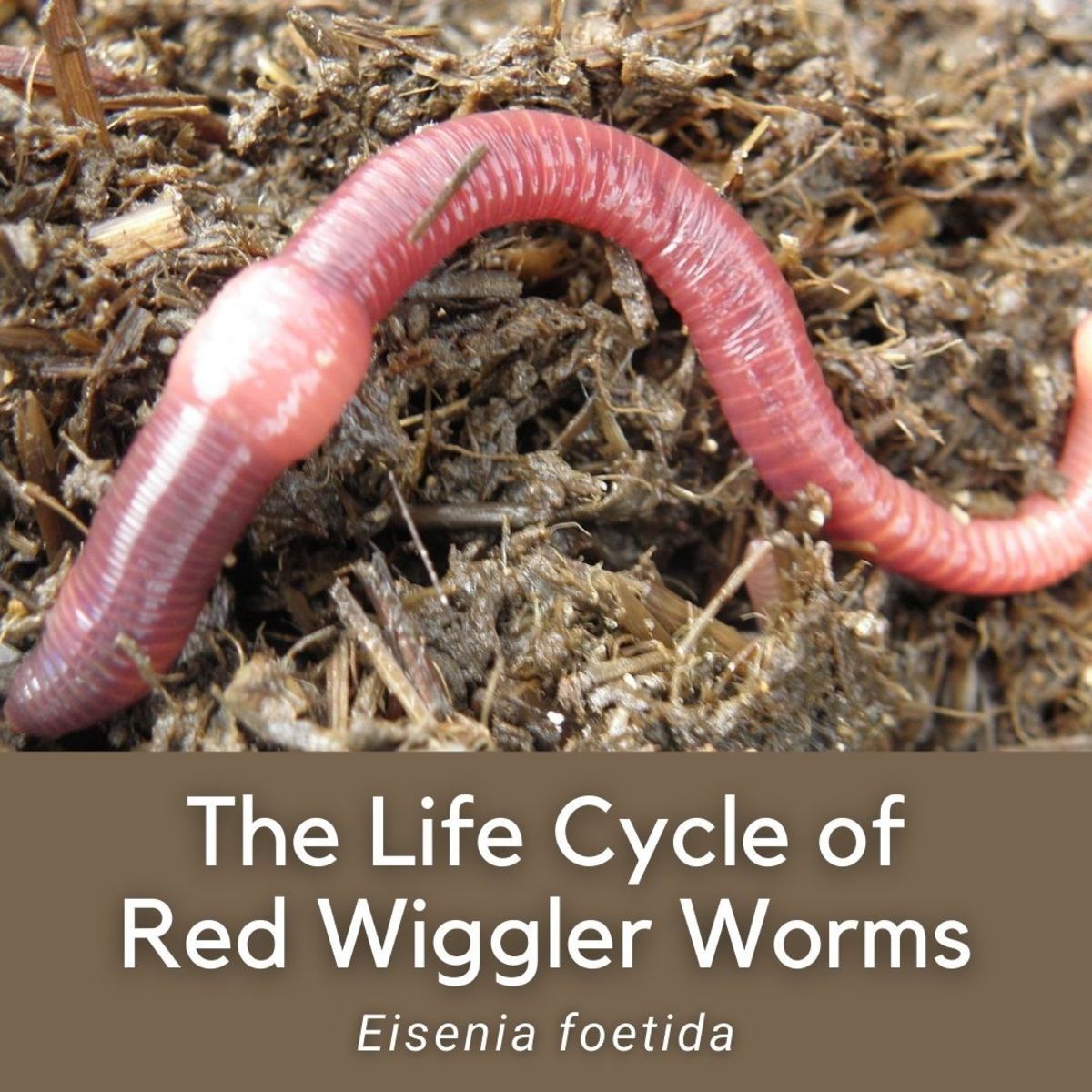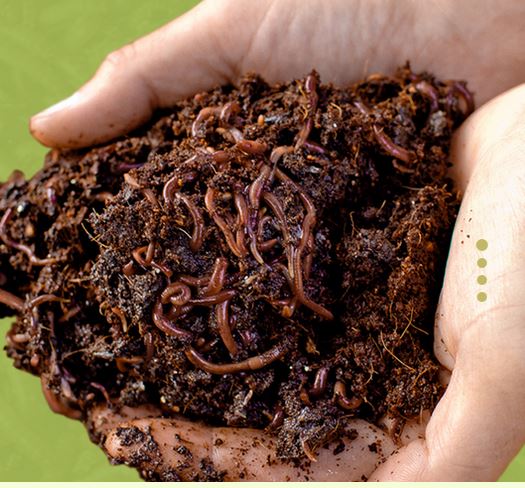Organic Composting with Red Wiggler Worms - Increase Your Yard's Development
Organic Composting with Red Wiggler Worms - Increase Your Yard's Development
Blog Article
Checking Out the Fascinating Globe of Red Wiggler Worms: Lasting Solutions for Waste Monitoring and Soil Wellness
Within the detailed internet of lasting options for waste administration and soil health, one frequently forgot yet tremendously beneficial gamer arises - the red wiggler worm. These modest creatures, with their starved hunger for organic matter, hold the trick to transforming waste into nutrient-rich garden compost. As we peer into the fascinating globe of red wigglers, a much deeper understanding of their function in the community unfolds, clarifying their potential to transform the method we approach garbage disposal and dirt fertility.
The Duty of Red Wigglers in Waste Management
Using red wiggler worms in waste administration procedures demonstrates a effective and lasting approach for organic matter decomposition. These ravenous composting champs belong to the types Eisenia fetida and are renowned for their capacity to damage down food scraps, paper, and other organic products into nutrient-rich garden compost. Red wigglers master converting cooking area waste and garden particles right into vermicompost, a beneficial source that can improve soil fertility and framework.
Red wigglers play a vital duty in waste monitoring by taking in and absorbing organic issue, thereby decreasing the quantity of waste that ends up in land fills. Their digestive system procedure not just aids to divert waste from typical disposal approaches however additionally generates top quality compost that can be made use of in landscaping, farming, and horticulture. The castings left behind by red wigglers are abundant in essential nutrients like phosphorus, potassium, and nitrogen, making them a sustainable and natural choice to chemical plant foods - Red Wiggler Worms.
Benefits of Vermicomposting With Red Wigglers

One secret benefit is the speed at which red wigglers break down organic materials. These worms have a starved cravings and can refine big quantities of food waste promptly, causing faster garden compost production compared to standard techniques. Additionally, the vermicompost generated by red wigglers is abundant in vital nutrients like potassium, nitrogen, and phosphorus, making it an outstanding organic fertilizer for plants.
Additionally, vermicomposting with red wigglers assists draw away natural waste from land fills, lowering greenhouse gas exhausts and adding to an extra sustainable waste monitoring system. By reusing natural issue via vermicomposting, individuals and communities can decrease their environmental footprint while producing a useful source for enhancing dirt structure and fertility. Overall, the benefits of vermicomposting with red wigglers make it a cost-efficient and environmentally friendly solution for handling organic waste and boosting dirt wellness.
Red Wigglers: Nature's Dirt Engineers
Recognized for their amazing ability to change the composition and high quality of soil, red wigglers play a crucial function in improving ecosystem dynamics via their dirt design expertise. These humble earthworms tunnel with the soil, producing passages that improve aeration and water seepage. By doing so, they help with root development and nutrient uptake by plants, ultimately adding to boosted soil fertility. Red wigglers also damage down natural issue like decaying fallen leaves and plant particles, converting them right into nutrient-rich castings that enhance the dirt with vital minerals and valuable microorganisms. Their constant activity helps to blend dirt layers, distributing nutrients extra uniformly and creating a healthy environment for soil organisms.

Red Wigglers and Soil Health
With their extensive influence on dirt structure and community dynamics, red wigglers contribute in nurturing dirt wellness with their diverse dirt design activities. These humble animals play a critical duty in improving soil fertility and structure. Red wigglers break down natural issue, such as decaying fallen leaves and cooking area scraps, into nutrient-rich spreadings that enhance soil top quality. Their burrowing activities create passages that aerate the dirt, allowing far better water seepage and root development. By enhancing microbial task in the soil, red wigglers help in nutrition cycling, making crucial nutrients much more available to plants. In addition, their castings consist of helpful microbes that aid suppress unsafe microorganisms, advertising plant health and wellness. Red wigglers likewise add to soil gathering, which boosts soil framework and security, minimizing disintegration risks. Generally, the presence of red wigglers in the soil is a clear indication of a healthy and vibrant environment, demonstrating the crucial role they play in preserving dirt wellness and sustainability.
Implementing Red Wigglers for Sustainability
The assimilation of red wiggler worms into sustainable agricultural practices showcases their pivotal role in fostering environmental stewardship and source performance. These industrious animals supply a multitude of advantages when implemented attentively. By introducing red wigglers right into composting systems, natural waste can be effectively exchanged nutrient-rich vermicompost, reducing the need for chemical plant foods and shutting the loophole on natural matter usage. The spreadings produced by red wiggler worms are abundant in advantageous germs and see enzymes that boost soil framework, enhance water retention, and promote plant growth.
In enhancement to squander management, red wigglers additionally play a crucial role in sustainable food manufacturing. Their capability to rapidly process raw material not just reduces greenhouse gas discharges from decaying waste but additionally supplies a lasting source of protein for livestock and aquaculture feed. Incorporating red wiggler worms right into agricultural systems stands for a straightforward yet powerful option for boosting sustainability, advertising circular economic situations, and protecting our valuable natural deposits.
Verdict
In verdict, red wiggler worms play a critical function in waste monitoring through vermicomposting, profiting page both the atmosphere and soil wellness. Their capability to break down natural matter and improve dirt structure makes them valuable allies in lasting practices. By applying red wigglers right into waste management systems, we can minimize waste, enhance soil high quality, and promote ecological sustainability for a healthier earth.
Known for their impressive capability to change the structure and quality of dirt, red wigglers play an essential duty in enhancing ecological community dynamics with their soil engineering expertise. In general, red wigglers are indispensable dirt designers that play an important duty in maintaining dirt health and promoting lasting ecosystem working.
With their extensive impact on soil make-up and why not check here community characteristics, red wigglers are instrumental in nurturing dirt wellness through their diverse dirt design activities. Red wigglers likewise add to dirt aggregation, which improves soil framework and security, decreasing disintegration threats. Overall, the existence of red wigglers in the dirt is a clear indication of a lively and healthy and balanced ecosystem, demonstrating the necessary duty they play in maintaining soil health and wellness and sustainability.
Report this page